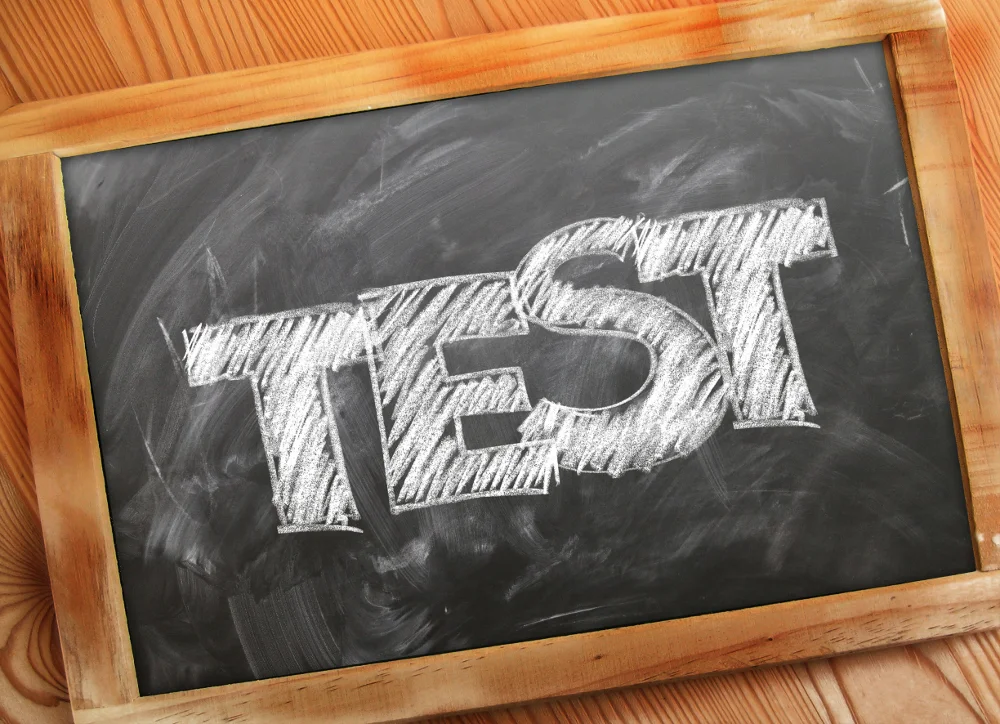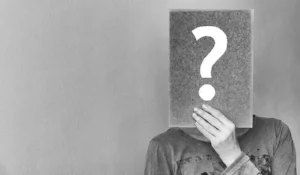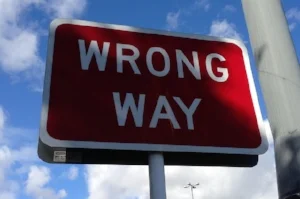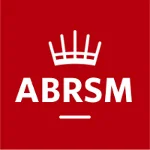Why would you want to do an exam? Is it worth all the work and pressure? What if you just want to play for fun? What if you are someone who suffers with nerves and struggles to reach your full potential under these kinds of conditions? Isn't it just a piece of paper to tell you what standard you are? Don`t you know what standard you are already? If you do decide you want to do an exam where do you go from here? Which one? Trinity, Rockschool? ABRSM? How long will it take? Having taken a million and one exams myself, and having entered hundreds, here is my take on what many deem to be something that sends a cold slice of fear deep into their very soul. Dramatic, I know! Maybe I can de-mystify some of the areas surrounding music exams.
The first question you might have is "why?" The biggest benefit of taking an exam is that it will tell you more about yourself and your playing than any other single performance bar none, and the pros far outweigh the cons, as long as it is approached sensibly. The biggest issue is probably the stress and nerves that some players feel either when preparing for an exam or during the exam. I always found playing to larger crowds far less intimidating than just one person who's stare is searing through you like the lasers from Superman eye's through a snow. I will cover how to prep for an exam and stage fright in another topic soon, but for now let`s concentrate on the “why should I?”
Preparation for an exam is no more work than you should normally do in your general practise. You have songs to learn, usually some form of technical exercises to master, and some general musicianship tests such as sight reading, ear tests and general knowledge questions. If you have been even half diligent in your practise then the technical exercises should be pretty straight forward. If you practise regularly then they will be a breeze. Yes, a gentle walk in the park succeeded by someone telling you how well you just swaggered, all the while enjoying the sunset ricocheting off your Aviators, midst sippng a cocktail.
Also, gone are the days where some exams boards of the past ignore the latest styles and trends, stubbornly opting for the cliche’d Victorian approach. THIS IS AN EXAM AND YOU WILL NOT ENJOY THE PREP OR THE EXAM!! Thankfully this is not something today’s best exam boards adhere to and they tend to be progressive with the current trends of the industry, with some working hard to license commercial tracks (classic and contemporary) or make sound-a-likes. This makes learning the songs much more fun all the while keeping applicable to today’s styles and techniques. That`s right, the pieces really ARE fun to learn, and the best bit is the harder the piece, the more fun they are and the cooler they sound!
Another benefit of entering yourself for an exam is that it is completely goal orientated. With all the above withstanding, you have a time limit to get yourself into shape. Imagine I said, “you have an indefinite amount of time to get yourself in shape for a marathon, you can run it whenever you think you`re fit enough”. Where is the incentive to get on with the training as soon as possible? Now, imagine if I said “you have 6 months to get yourself in shape for a marathon”. Now, you have a deadline and a goal. Having that deadline pushes you to make a commitment and when people make a real commitment to something, that normally bears fruit.
The confidence one can gain from an exam can be extremely important to your self-worth as a player regardless of your current ability. I once taught someone who was in floods of tears two weeks before his first exam, and after a little coaching on nerves and stress during lessons (which will come in another blog), he was able to ace the exam, felt far more comfortable in his playing and never worried about another performance ever again. I`m not saying he didn't feel a little nervous about exams (in fact it`s healthy to feel this way), but exams and audiences never bothered him to the point of tears ever again. There is also nothing more pleasing to see someone who has gone from being shy and complacent about their ability to looking and playing confidently, and most people are so proud of themselves/their daughter/son that they dedicate a wall in their house to show off their success. As much pressure as you may feel from exams, there aren't many things that make you grow as a player than being in uncomfortable conditions. Playing live will also give you a similar benefit. The stress will disappear, and in it’s place, a more experienced, confident and well-rounded musician will materialise. The comfort zone is a beautiful place, but nothing ever grows there.
We all have our favourite players and styles of music. However, entering for an exam will give you the opportunity to explore different styles. In fact it’s more of a gentle push. If you are into rock, try the Latin jazz exam piece, If you are into funk, try the heavy metal track. You will gain a broader knowledge of different music and that in turn will make you a better musician. You can later apply what you have learned in the funk song, to that rock track you were struggling with because now you have a richer understanding of the rhythm. You can obviously cover these styles in your lessons, but again, in an exam, a little bit of pressure equals big growth.
You also get feedback on your playing from an impartial source. It is beneficial to see what someone who doesn't know you thinks of your playing. As much as your mum loves you, very few mums and dads will tell you the honest truth (either they don`t have the experience or just don`t want to see you upset). Having said that, the feedback you will get from an exam is very rarely brutal and I can`t think of a time when I saw feedback that was nasty. It is a mostly encouraging attitude taken by examiners, and it will give you a boost when you see the words “Excellent playing today!”
An exam certificate is not just a piece of paper, and to my mind never has been. Due to the musicianship you will learn along the way, qualifications will become far easier as you will be able to translate what you already know to GCSE and A level courses. Universities and colleges take them seriously enough that they also carry UCAS points. UCAS points are important for further education and if you would like to study music at a more advanced level they can be a pre-requisite for entry. You gain UCAS points from grade 6 onwards.
When NOT to do an exam:
I would advise not entering for an exam if you either have important college exams coming up in the next couple of months, or you have important business plans to prepare for, or other family commitments you really can't abdicate. The last thing you want is to put too much on your plate. Exams run at various times of the year and there is ALWAYS the next period. Also, never enter an exam until you are ready. There’s nothing worse than being under prepped.
Personally, I would be wary of teachers that are overly keen to enter you exam after exam after exam. You must make sure you are working on music and techniques outside of them. Exams materials are not the same as teaching materials and this approach will eventually leave you short in many areas if you only partake in exams. You’ll eat up the pressure and you'll get good at passing exams, for a while. Eventually you won’t have the musical maturity to pass them. Take time out to develop your musicianship. Conversely, be suspicious of teachers that refuse to put you in for exams. This is a generally a red flag that says “I don’t know how to prepare you for it, and you might fail and figure out I don’t know what I’m doing”.
Exams come in the form of “grades”, and the higher the grade obviously the more difficult the syllabus. Exam cost is between around £40 for the lower grades to £100 for the higher grades, and the length of time can vary between around 10 minutes for the lower grades to 30 minutes for the higher grades. When you receive your result which can take a couple of weeks, your mark will fall into one of several categories, distinction, merit, pass, below pass.
Here is a general overview of the main exam boards.
TRINITY COLLEGE ROCK AND POP
Trinity College have worked hard to get the licenses to actual commercial songs for use in their exams which is only one of many reasons why this board is so popular. They include “Smells Like teen Spirit” by Nirvana, “Are You Gonna Go My Way” by Lenny Kravitz, “Ziggy Stardust” by David Bowie, “Morning Glory” by Oasis, “Sweet Child Of Mine” by Guns n Roses, and many more famous tracks. You even play your own songs provided it is in keeping with Trinity guidelines making it a very flexible option. You can also be examined as a band too!
EXAM STRUCTURE:
- SONG 1 (25 marks) – A song chosen from the official Trinity songbook played with the backing track.
SONG 2 (25 marks) – Either:
A different song from the official Trinity songbook.
A song from the additional repertoire songbook.
An own choice song.
A song composed by the candidate.
- SESSION SKILLS (20 marks) – You can choose either playback or improvisation. Playback is a combination of an ear test and a sight reading test. Improvisation will be a specified style over a backing track. Both tests are unseen and you will have a very small amount of time to prepare during the exam.
SONG 3 TECHNICAL FOCUS (30 marks) - A song chosen from the official Trinity songbook played with the backing track. There are specific technical elements you would do well to include which warrant the extra marks. These elements are included in the official Trinity syllabus along with other helpful tips and hints.
UCAS POINTS:
ROCKSCHOOL
Rockschool pieces consists of sound-a-likes and include a variety of styles, and there are multiple sections to the exam. You also have some choice in the type of exam you take and have some flexibility in song choices.
Rockschool offer two options, the PERFORMANCE CERTIFICATE and the GRADE CERTIFICATE.
PERFORMANCE CERTIFICATE EXAM STRUCTURE:
- 5 SONGS (20 marks each) - The exam consists of playing 5 songs in total which can be chosen from the official Rockschool syllabus. You can also play 3 free choice pieces as long as they match the criteria given by Rockschool.
GRADE CERTIFICATE EXAM STRUCTURE:
- PIECES (20 marks) - The exam consists of 3 pieces in total. All of which can be chosen from the official Rockschool syllabus or you can choose 2 free choice songs provided they fit the Rockschool criteria.
TECHNICAL (15 marks) – consists of scales, arpeggios (grade 3 onwards), chords, and a riff. These get more difficult as you progress through the grades.
- SIGHT READING or IMPROVISATION (10 marks) – You can choose which one you would prefer to perform. This will be an unseen test and you will have a very small amount of time to prepare during the exam.
EAR TESTS (10 marks) – These are both melodic recall and rhythmic/harmonic recall.
- GENERAL MUSICIANSHIP (5 marks) – You will be asked 4 music knowledge questions and 1 instrument question.
UCAS POINTS:
This exam board is more suited to the classical and/or jazz styles, but I thought I would include it due to the size of the body. Whereas Trinity and Rockschool total marks are out of 100, ABRSM is marked out of 150. Aswell as grades 1-8, ABRSM also offer other exams such as a post grade 8 performance only diploma. You have to pass grade 5 theory before taking grade 6 and above if you opt for this board. Please check their website for more details.
EXAM STRUCTURE:
- 3 PIECES (30 marks each) – Candidates will choose 3 pieces included in the official ABRSM syllabus
TECHNICAL (21 marks) – There will be a number of scales and arpeggios/broken chords to perform, getting more numerous and difficult as you progress through the grades.
SIGHT READING (21 marks) - Candidates will be asked to play a short unaccompanied piece of music which they have not previously seen.
EAR TESTS (18 marks) – Depending on the grade, this will consist of clapping the pulse, recalling rhythm, identifying time signatures, modulations,chords and cadences, sight singing, correctly recalling a melody by singing it back to the examiner, identifying changes in a performance, answering questions about musical aspects of a performance, play from memory the lower/higher part of a three-part phrase.
UCAS POINTS:
In a nutshell, this is the world of exams and I hope all this helps. If you do decide to take an exam, remember, it is a chance to show someone how good you really are.
Best of luck!
(coming soon...how to prepare for an exam, and how to deal with stage fright!)















